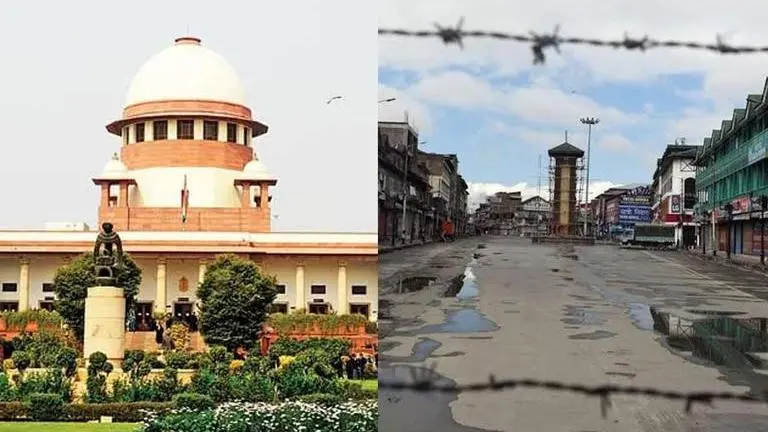Updated 11 January 2020 at 13:52 IST
Internet shut down in J-K cannot be indefinite, says SC
SC said the complete suspension of telecom and internet services indefinitely is impermissible and directed the J&K admin to review its orders suspending them
- India News
- 4 min read

The Supreme Court Friday said the complete suspension of telecom and internet services indefinitely is impermissible and directed the Jammu and Kashmir administration to review "forthwith" all the orders suspending them.
Restrictions contemplated under Suspension of Telecom Services (Public Emergency or Public Service) Rules, 2017 are temporary in nature and any order suspending internet must adhere to the principle of proportionality and must not extend beyond necessary duration, the top court said.
A bench of Justices N V Ramana, R Subhas Reddy and B R Gavai said: "The existing Suspension Rules neither provide for a periodic review nor a time limitation for an order issued under the Suspension Rules. Till this gap is filled, we direct that the Review Committee constituted under Rule 2(5) of the Suspension Rules must conduct a periodic review within seven working days of the previous review, in terms of the requirements under Rule 2(6)".
The apex court's verdict came on a plea by Congress leader Ghulam Nabi Azad and Kashmir Times Editor Anuradha Bhasin, who have challenged the restrictions imposed in the erstwhile state of Jammu and Kashmir post abrogation of provisions of Article 370 of the Constitution.
"An order suspending internet services indefinitely is impermissible under the Temporary Suspension of Telecom Services (Public Emergency or Public Service) Rules, 2017," it said.
The bench said orders which are not in accordance with the law laid must be revoked and in future, if there is a necessity to pass fresh orders, the law laid down must be followed.
It also directed the administration to consider forthwith allowing government websites, localized/limited e- banking facilities, hospitals services and other essential services, in those regions, wherein the internet services are not likely to be restored immediately.
The bench said, "We think it necessary to reiterate that complete broad suspension of telecom services, be it the Internet or otherwise, being a drastic measure, must be considered by the State only if 'necessary' and 'unavoidable". In furtherance of the same, the State must assess the existence of an alternate less intrusive remedy".
It said that the Suspension Rules lay down certain safeguards, keeping in mind the fact that an action under the same has a large effect on the fundamental rights of citizens.
Advertisement
"The appropriate balancing of the factors differs, when considering the stages of emergency and accordingly, the authorities are required to triangulate the necessity of imposition of such restriction after satisfying the proportionality requirement," it said.
The top court also voiced concern over Suspension Rules not providing for publication or notification of the orders and said it is a settled principle of law, and of natural justice, that order, particularly one that affects lives, liberty and property of people, must be made available.
"Any law which demands compliance of the people requires to be notified directly and reliably. This is the case regardless of whether the parent statute or rule prescribes the same or not. We are therefore required to read in the requirement of ensuring that all the orders passed under the Suspension Rules are made freely available, through some suitable mechanism," it said.
The top court said that if the orders are made public, the aggrieved or affected party can challenge them in an appropriate forum as it is their constitutional right.
Advertisement
"An aggrieved person has the constitutional right to challenge the orders made under the Suspension Rules, before the High Court under Article 226 of the Constitution or other appropriate forum", it said and directed that all the procedural safeguards are followed by the authorities.
Suspension Rules have certain gaps, which are required to be considered by the legislature, it said.
Highlighting one of the gaps, the bench said that though Suspension Rules use word "temporary", there is no indication of the maximum duration for which a suspension order can be in operation.
Published By : Press Trust Of India
Published On: 11 January 2020 at 13:52 IST
